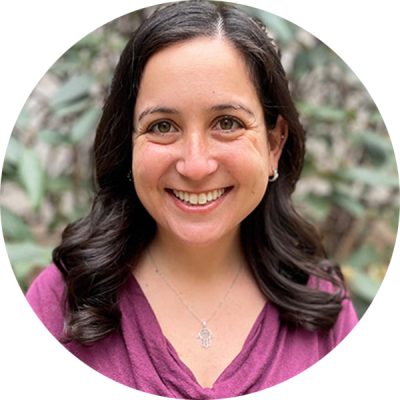
Callie Shubin
I worked in Carol Greider’s laboratory, where we study how telomere length is regulated. Telomere length equilibrium contributes to fundamental cellular processes as well as cellular aging and cancer. Specifically, my thesis work focused on the telomere binding protein Rif1. Rif1 is a conserved protein known to regulate telomere length, origin firing and DNA repair, but the connection of these functions remained unclear. Through this work, we learned that Rif1 has at least two independent functions; we showed that it regulates telomere length through a separate mechanism than that of origin firing. We extended this discovery by mapping the region of Rif1 that is critical for its telomere regulation. This region of the protein has also been shown to be important for DNA repair. This result provides new insight into how Rif1 may regulate both telomere length and DNA repair. These findings expand on our fundamental understanding of proteins involved in telomere length regulation and our understanding of the coordination of telomere length regulation with other cellular processes.
Questions & Answers
Why did you choose Johns Hopkins for your work?
I chose Johns Hopkins because of the many incredible scientists I met during my recruitment, including Carol Greider, my future PI. She and I will always remember her “Top 10 reasons to come to BCMB at Hopkins” email. I knew that at Hopkins I would not only become a strong scientist, but also form lasting relationships with other great scientists. I am happy to say I made the right decision, and I know these relationships will stay with me as I start the next chapter of my career.
What does receiving this award mean to you personally and professionally? Do you have any connection with the particular award you received?
This award has great meaning for me — to be recognized by my institution for the work I did is both humbling and deeply gratifying. I am profoundly moved by the particular award that I won, the Nupur Dinesh Thekdi award, as Nupur was a graduate student in my department who passed away much too young. Since receiving this award, I have learned of his compassion and his family’s endowment of an award in his name. I am honored to, in a small way, carry on his legacy.
What contributed to your project’s success?
Perseverance and perspective contributed to my positive and productive attitude during the trials and tribulations of graduate school. Perseverance because many times projects don’t go as planned, and perspective to know why this work was important and how the data and insights generated would help the field. Surrounding myself with smart dynamic people, including Carol, who think differently from me helped me see data in new ways and plan interesting experiments.
What thoughts do you have about Young Investigators’ Day itself, as a celebration of the roles students and fellows play in research at Johns Hopkins?
YID has always been a day of supporting fellow students and learning about the impressive science our colleagues are doing. The event brings together students from several programs and departments, which is both exciting and important. YID also reminds our community that students and fellows conceptualize and carry out much of the exciting and difficult work here, and are integral to the research at our institution.
What has been your best/most memorable experience while at Johns Hopkins?
During my second year of graduate school, Carol and I organized a bus to take 50 of our Institute for Basic Biomedical Sciences colleagues to Washington, D.C., for the March for Science. We had a poster-making happy hour the day before, and spent the day advocating for science in the rain. Carol reminded me, “We are all waterproof,” and we made many lasting memories that day. To add to the excitement, my family was able to meet us in D.C. and support my efforts, advocate with me and my colleagues, and meet my science family.
What are your plans over the next year or so?
I am very excited to say that I am starting a scientist position at Neochromosome in New York City, working on synthetic genome engineering.
Tell us something interesting about yourself.
This is always a tough question because what is interesting to me may not be interesting to you! I will share with you my luck for attending musicals in the front rows of the audience, which began with last-minute TKTS tickets to see Chicago in seventh grade. Since then, I have gotten to see Hamilton and The Book of Mormon twice, with great luck from in-person and digital lotteries and great friends who take me with them when they win.